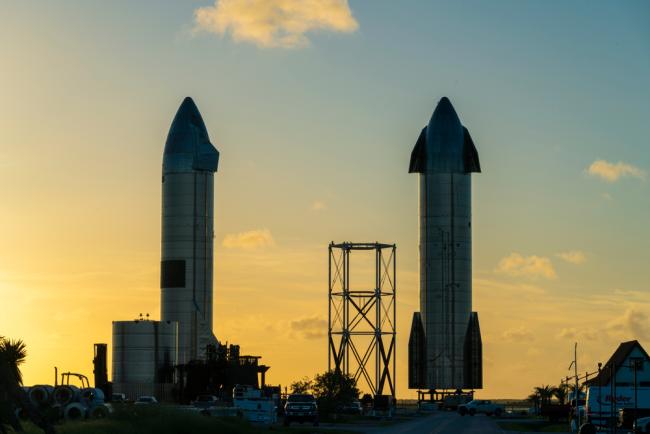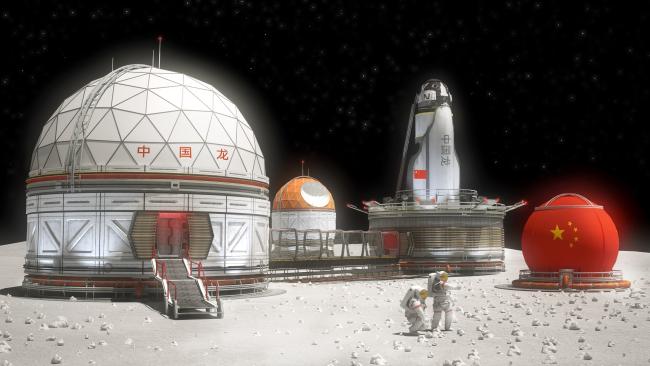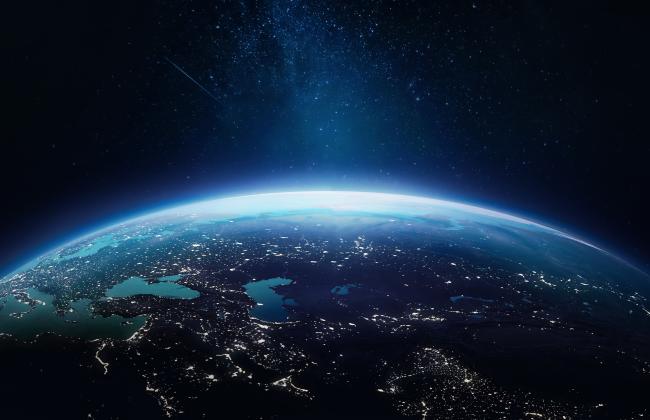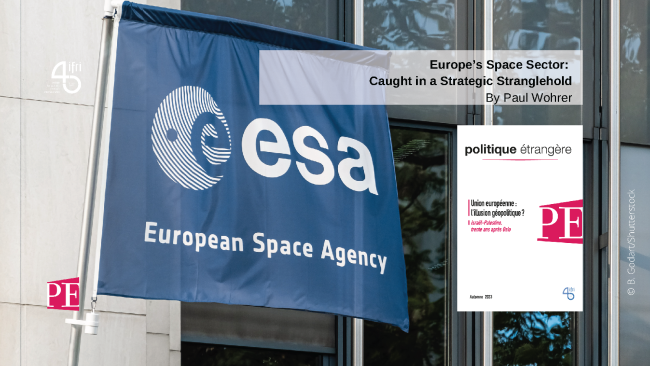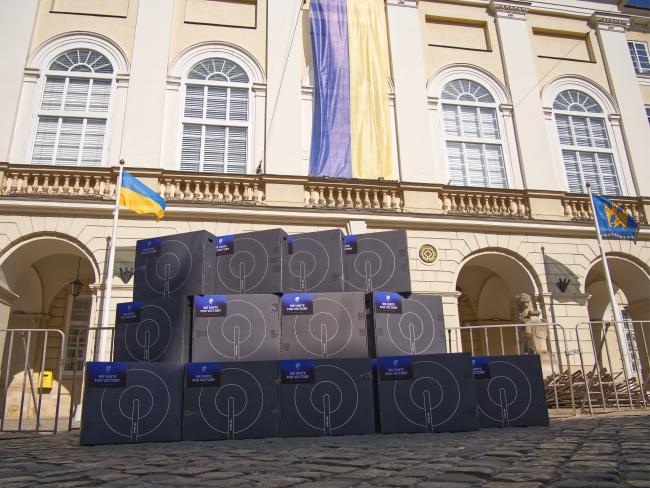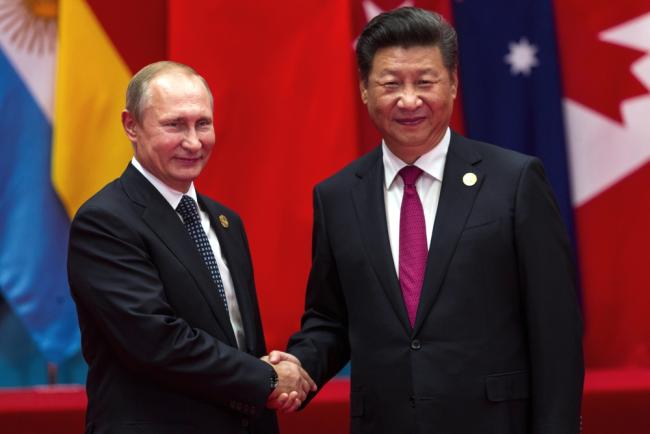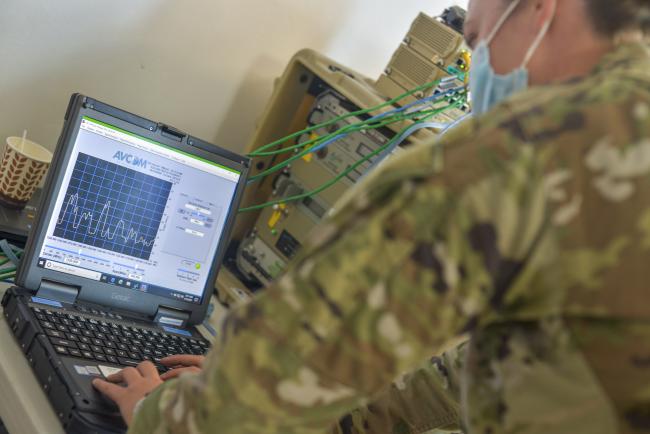Space
Satellite constellations, new launchers, lunar programs... Innovations in the space sector are shaking up global political, industrial and strategic dynamics.
Related Subjects

2024: A Pivotal Year for the Space Sector?
2024 could be a pivotal year for space exploration. New launchers are set to make their first flight, satellite constellations and other trends promise to redefine the way space is explored and exploited.
Racing to the Moon: China's Lunar exploration program in competition with the United States
A new Cold War-style race to the moon seems to be in the making. The People’s Republic of China and the United States are both investing in moon exploration with manned lunar scientific stations as the ultimate goal.
Ethics and Responsibility in Space Exploration: The Rise of Soft Law to Regulate New Practices

European Union: A Geopolitical Illusion?
The European Union (EU) is holding firm in the face of the war in Ukraine—perhaps better than expected. But what long-term effects will the war have on European institutions and policies? The institutions will need to be changed to cope with the forthcoming expansions. The EU has certainly made progress toward common industrial and technological policies. But will this dynamic do away with a conception of strategic autonomy, encompassing both diplomacy and strategy? The European Union, which will undoubtedly be a key mover of future changes for the continent, remains largely uncertain in terms of its future configurations.
Europe's Space Sector: Caught in a Strategic Stranglehold
Europe's space sector is currently faced with great difficulties, marked by the temporary loss of autonomous access to space, strong competition from the USA, and the transformation of the satellite market.
China in the Race to Low Earth Orbit: Perspectives on the Future Internet Constellation Guowang
In April 2021, the Chinese government officially, but rather quietly, established a new state-owned enterprise (SOE) named China SatNet. Its mission: build out China’s “mega-constellation” program for low Earth orbiting internet satellites, known as Guowang (“national network”).
How the War in Ukraine is Changing the Space Game
The war in Ukraine has become a showcase for the new commercial paradigm emerging in the space sector (New Space). As such, it seems to confirm the relevance of adaptation efforts led by the United States – more specifically the Pentagon – since the mid-2010s.
China-Russia Cooperation in Space: The Reality behind the Speeches
China-Russia cooperation in space has been increasing for the past two decades. This cooperation accelerated after the Crimea crisis in 2014 and culminated with the announcement in 2021 of the joint construction of the International Lunar Research Station (ILRS).
The Space Downstream Sector: Challenges for the Emergence of a European Space Economy
As the commercial anchor of the space sector, the downstream sector plays an essential role in Europe where industry focuses mainly on application markets and where socio-economic considerations have become the main driver of space policy.
The Military Use of Small Satellites in Orbit
The number of small satellites in orbit has increased rapidly over the last decade, and the growth of this sector is expected to accelerate even more in coming years.
Japan's New Dual-Use Space Policy: The Long Road to the 21st Century
Japan’s latest space policy is designed to support a more proactive US-Japan alliance role in containing China, and robustly defend Japan against North Korean ballistic missile threats.
Space in a Changing Environment: a European Point of View
The development of European space activities has long been pursued under the framework of the European Space Agency and other national space agencies. More recently, the emergence of the European Union as a new actor for space has paved the way for a series of initiatives and opportunities.
Development of the Northern Sea Route: How great is the need for satellite observation?
The sea route between Europe and Asia is significantly shorter via Arctic waters than via the Suez Canal. Changes in global climate have resulted in a diminishing of ice in Arctic waters. This has resulted in the Northern Sea Route establishing itself as a viable commercial alternative, which is expected to expand in the years ahead. Satellite observation is one of the methods employed to gather information about ice conditions, weather and oil spills, and is a prerequisite for ensuring the continued development of the new traffic.
Governing the Geostationary Orbit: Orbital Slots and Spectrum Use in an Era of Interference
Outer space, particularly in the telecommunication sector, is benefiting and becoming accessible to more and more actors. But with this trend comes also a reality that is every day more compelling: no meaningful development can be achieved without a clear, stable and predictable interference-free environment for the use and control of all satellites that depend upon ready access to radio frequencies and appropriate geostationary orbital slots to function properly.
The Vegetation Programme
Under human pressure, many changes are taking place in the resources and the environment of Earth. An increasing global population fuels the need for food, natural resources and land. Consequently, the need for maintaining a capacity to observe and understand the Earth system and the biophysical processes has become a key element for the sustainable management of the planet’s natural resources. The SPOT-Vegetation instruments have significantly contributed to reach this goal.
The Lisbon Treaty and the Evolution of European Space Governance
Until the adoption of the Lisbon treaty in December 2007, there was no explicit reference to space in the EU’s constitutive documents. While the European Space Agency has been active in space since the mid-1970s, the Union’s policy remained without a legal basis for space activities. Parallel to the treaties’ evolution however, the EU’s competences never stopped expanding to new fields, bringing it ever closer to space and its various applications. Creativity and dynamic uses of these existing competences have allowed the EU to progressively interfere with the space sector and to get closer to ESA.
Launcher policy in Europe: from symbol to the market?
Launcher policy will be one of the major issues discussed at the upcoming ESA Council at Ministerial Level. Europe is at the crossroads, as it needs to find the adequate balance between political necessities (ensuring an autonomous access to space) and economic realities (reducing costs).
2012, a turning point for Europe in space
In 2012, several crucial decisions lie ahead, most notably at the ESA Ministerial Council next fall and regarding the status of space within the next MFF of the EU. These will reveal the degree of political will to pursue an ambitious ESP in times of economic and financial constraint.
Key Trends in the European Earth Observation Sector
An ambitious Earth Observation (EO) policy could bring significant benefits to Europe both regarding the fight against climate change and the competitiveness of its EO industry and service sectors.
Support independent French research
Ifri, a foundation recognized as being of public utility, relies largely on private donors – companies and individuals – to guarantee its sustainability and intellectual independence. Through their funding, donors help maintain the Institute's position among the world's leading think tanks. By benefiting from an internationally recognized network and expertise, donors refine their understanding of geopolitical risk and its consequences on global politics and the economy. In 2024, Ifri will support more than 70 French and foreign companies and organizations.










